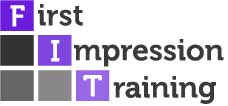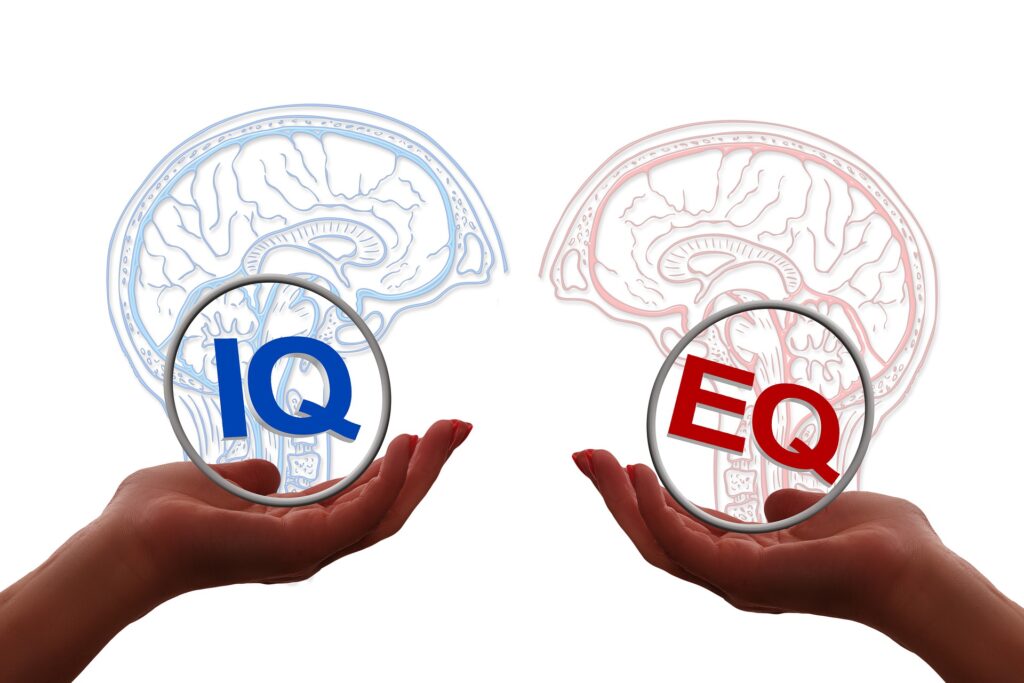In his book Emotional Intelligence, author Daniel Goleman suggested that EQ (Emotional Quotient) might actually be more important than IQ. Howard Gardner, developmental psychologist and creator of the Multiple Intelligences Theory may well agree.
Gardner has suggested that INTELLIGENCE is not a single, linear ability. In fact, in his 1983 book ‘Frames of Mind’ he cites 8 different intelligences, which can be developed through life, proposing that people are not born with ALL the intelligence they will ever have.
The 8 Multiple Intelligences are:
- Linguistic
- Logical-Mathematical
- Spatial
- Bodily-Kinaesthetic
- Musical
- Interpersonal
- Intrapersonal
- Naturalist
You can find out more about these 8 intelligences here;
When you consider the definition of each of these intelligences, it’s interesting to note that the majority of them relate, in some way, to EMOTIONAL INTELLIGENCE – proving that both Goleman and Gardner’s philosophies are fully aligned.
So, what is Emotional Intelligence (EQ)?
Emotional intelligence is the ability to understand, use and manage our own emotions in positive ways to relieve stress, communicate effectively, empathise with others, overcome challenges and defuse conflict. Emotional intelligence helps us to build stronger relationships, because it helps us to connect better with our own feelings, as well as the feelings of others.
Emotional intelligence is commonly defined by four key attributes:
1. Self-Management – You’re able to control impulsive feelings and behaviours; manage your emotions in healthy ways; take initiative; follow through on commitments and adapt to changing circumstances.
2. Self-Awareness – You recognise your own emotions and how they affect your thoughts and behaviour. You know your strengths and weaknesses and have self-confidence.
3. Social Awareness – You have empathy. You can understand the emotions, needs and concerns of other people; pick up on emotional cues; feel comfortable socially and easily recognise the power dynamics in a group or organisation.
4. Relationship Management – You know how to develop and maintain good relationships; you can communicate clearly; inspire and influence others; work well in a team and manage conflict.
Clinical & corporate psychologist Dr Martyn Newman debates that there are in fact 10 vital ingredients of Emotional Intelligence, namely:
1. Self Knowing
2. Self Confidence
3. Self Reliance
4. Self Actualisation
5. Self Control
6. Optimism
7. Adaptability
8. Empathy
9. Relationship Skills
10. Straightforwardness
Interestingly, Newman delves deeper into the ingredient of SELF CONFIDENCE, defining it as a combination of both SELF-LIKING and SELF-COMPETENCE. In a psychological study, testing how verbal messages impacted an individual’s confidence, 432 messages were received negatively and just 32 positively – concluding that, with a 14:1 ratio, we must be very careful what messages we allow into our emotional brains, because our self-confidence will be the victim every time, impeding our level of emotional intelligence.
Many of the ingredients Newman identified are of course, relatable to both the work of Coleman and Gardner and indeed, all 3 of these eminent psychologists agree that EQ is a blend of positive qualities and traits that CAN be developed and honed AND that it’s not always the smartest people who are the most successful or the most fulfilled in life.
Someone may be academically brilliant with a high Intelligence Quotient (IQ) and yet may be socially inept and unsuccessful at work or in their personal relationships. Intellectual ability isn’t enough on its own to achieve success in life. Yes, your IQ can help you get into college or Uni, but it’s your EQ that will help you manage the stress and emotions when facing your final exams!
So, why is Emotional Intelligence so important?
Emotional intelligence affects so many aspects of our being, from both a business and personal perspective:
Our performance at work. High EQ levels can help us navigate the social complexities of the workplace, effectively lead and motivate others and help us to excel in our career. In fact, when it comes to ensuring the right person is selected for the job, many companies now rate Emotional Intelligence as important as technical ability and so will carry out EQ testing before hiring.
Our physical health. If we’re unable to manage our emotions, we are probably not managing our stress either. This can lead to serious health problems. Uncontrolled stress raises blood pressure, suppresses the immune system, increases the risk of heart attacks and strokes, contributes to infertility and speeds up the aging process. The first step to improving Emotional Intelligence is to learn how to manage stress.
Our mental health. Uncontrolled emotions and stress can also impact our mental health, making us vulnerable to anxiety and depression. If we are unable to understand, get comfortable with, or manage our emotions, we’ll also struggle to form strong relationships. This in turn can leave us feeling lonely and isolated and further exacerbate any emotional wellbeing problems we may be experiencing.
Our relationships. By understanding our emotions and how to control them, we’re better able to express how we feel and understand how others are feeling. This allows us to communicate more effectively and forge stronger relationships, both at work and in our personal life.
Our social intelligence. Being in tune with our emotions serves a social purpose, connecting us to other people and the world around us. Social intelligence enables us to recognise friend from foe, measure another person’s interest in us, reduce stress, balance our nervous system through social communication, and feel loved and happy.
Building Emotional Intelligence
So, it’s proven that Emotional Intelligence can be learned at any time. However, it’s important to remember that there is a difference between simply learning about EQ and applying that knowledge to your life.
Knowing something is not the same as doing something, as we all know – just because you know you should do something doesn’t mean you will—especially when you become overwhelmed by stress, which can override your best intentions.
In order to permanently change behaviour in ways that stand up under pressure, you need to learn how to overcome stress in the moment and in your relationships, in order to remain emotionally aware.
The 4 key skills of EQ, also cited as vital ingredients by Goleman and Gardner, that will help to develop our Emotional Intelligence and improve our ability to manage our emotions and connect with others, are:
1. Self Management
2. Self Awareness
3. Social Awareness
4. Relationship Management
In a recent article published by mental health experts, HealthGuide, Jeanne Segal (Ph.D.), Melinda Smith (M.A.), Lawrence Robinson & Jennifer Shubin offer some really useful tips to hone these 4 skills, including practical ways to de-stress and be more mindful AND an excellent audio meditation on mindful breathing, to help control our emotional state and build greater resilience and mental strength.
You can read the full article here
So, whether you’re a Baby Boomer or a Millennial….be more emotional from now on, OK!?
Until next time – stay safe & keep FIT!
Best regs,
Marie X


















